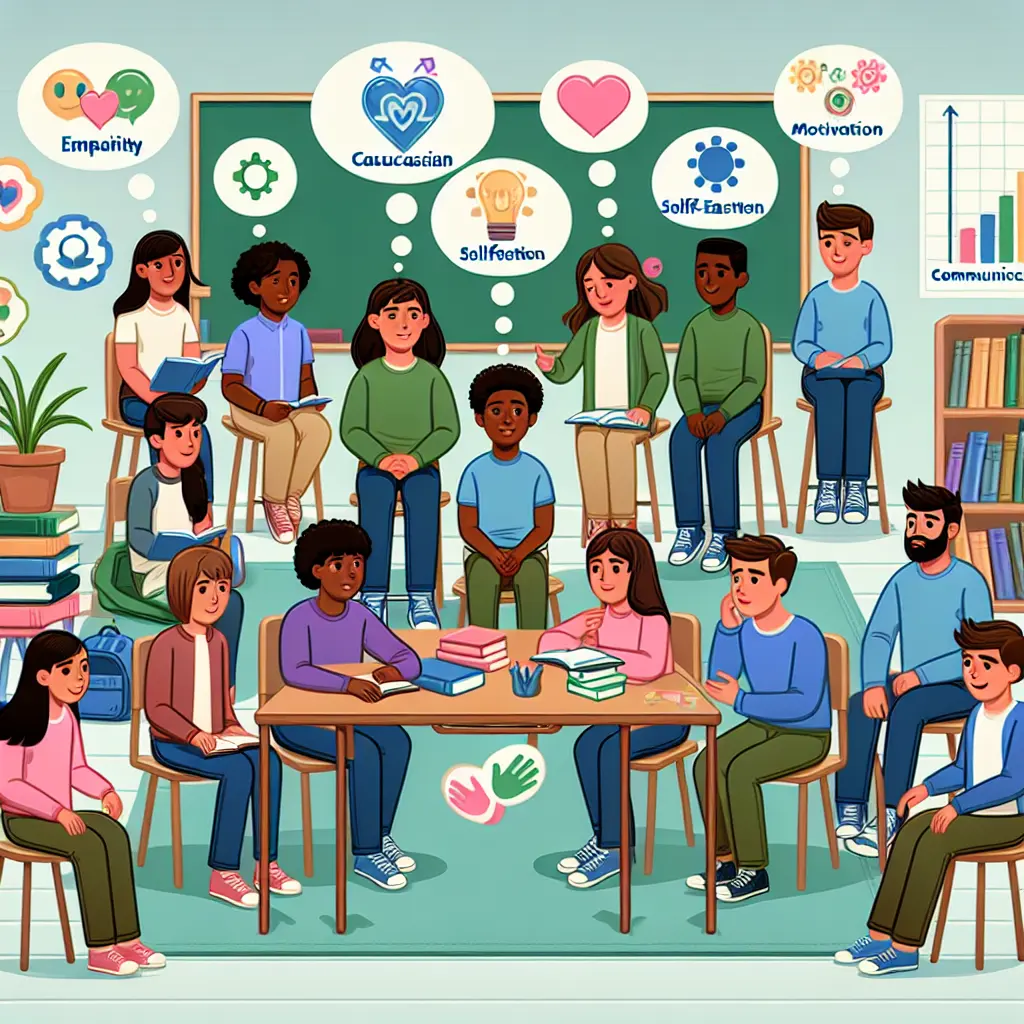
In today's rapidly evolving educational landscape, emotional intelligence in education is gaining significant traction. As educators and researchers delve deeper into the intricacies of student success, emotional intelligence emerges as a pivotal factor influencing both academic and personal growth. More than just a trendy buzzword, emotional intelligence represents a transformative approach that enhances student outcomes and fosters a supportive learning environment.
Understanding Emotional Intelligence
Emotional intelligence encompasses skills such as empathy, self-awareness, and effective communication. These skills are vital not only for academic success but also for personal development. In classrooms where emotional intelligence is prioritized, students are better equipped to manage stress, navigate social complexities, and build resilience. But what does this mean for student performance?
Studies consistently show a strong correlation between emotional intelligence and student performance. For instance, research by the Yale Center for Emotional Intelligence indicates that students with higher emotional intelligence scores tend to achieve better grades and face fewer disciplinary issues. This clearly underscores the impact of emotional intelligence on student success.
Benefits of Emotional Intelligence for Students
Enhanced Academic Performance
Emotional intelligence in education transcends traditional learning by integrating skills that foster holistic growth. For example, emotional literacy programs in California have been linked to improved standardized test scores and graduation rates.Improved Social Skills
Developing emotional intelligence encourages empathy and effective communication, which are crucial in multicultural settings. In places like Nigeria, where preserving indigenous languages faces challenges, emotional intelligence can facilitate better cultural understanding and cooperation.Stress Management and Resilience
The pressures of academic life can be overwhelming. By nurturing emotional intelligence, educators help students manage stress effectively. For instance, students equipped with these skills are better prepared to handle health-related anxieties calmly.Preparation for Future Challenges
Emotional intelligence prepares students for challenges beyond school. In a world where adaptability is crucial—such as with women driving e-rickshaws in India—emotional intelligence equips individuals with the confidence and resilience needed to succeed.
Implementing Emotional Intelligence in Schools
Recent initiatives, like California's proposal to construct housing for teachers and students, recognize the role of emotional well-being in academic success. By providing stable housing, stress levels decrease, allowing students to focus on learning and personal growth.
Schools embedding emotional intelligence into their curricula report significant improvements. For example, a Los Angeles school district program resulted in a 30% reduction in absenteeism and increased student engagement.
Practical Strategies for Fostering Emotional Intelligence
Curriculum Integration
Schools should incorporate emotional intelligence into daily lessons, including activities that promote self-awareness and empathy.Teacher Training
Educators need training to effectively nurture emotional intelligence in students. Workshops on emotional literacy can empower teachers to integrate these principles into their teaching methodologies.Creating Supportive Environments
As seen in California's housing initiative, creating stable environments is crucial. Schools should ensure students feel safe and supported both emotionally and academically.Leveraging Technology
With the rise of digital learning platforms, integrating emotional intelligence tools into online education can reach a wider audience. Apps promoting mindfulness and stress management can be invaluable resources for students.
Addressing Challenges with Emotional Intelligence
While the benefits are vast, challenges remain. For instance, the risk of Nigerian indigenous languages facing extinction highlights the need for emotional intelligence in fostering cultural preservation and understanding.
As educators balance academic achievement with emotional well-being, incidents like a schoolgirl suffering burns underscore the need for safety protocols alongside emotional support systems.
Conclusion: Embracing Emotional Intelligence for Educational Excellence
Emotional intelligence is increasingly recognized as critical to student success. By understanding and prioritizing it, educators can profoundly enhance educational outcomes. From improving academic performance to fostering empathy and resilience, emotional intelligence equips students with essential skills for navigating school and life's complexities. Evidence from studies, such as those by the Yale Center for Emotional Intelligence, underscores its pivotal role in improving grades and reducing disciplinary issues.
Integrating emotional intelligence into curricula supports holistic development, as seen in California and Los Angeles programs showing tangible benefits like increased engagement and reduced absenteeism. These initiatives highlight the need for schools to embed emotional intelligence principles into daily learning experiences.
The potential of emotional intelligence extends beyond academics, preparing students for future challenges in a dynamic world. As global developments unfold—like women entering new industries or cultural preservation efforts—it becomes clear that emotional intelligence is a tool for thriving in diverse contexts.
As we reflect on these insights, let's consider how we can further integrate emotional intelligence into education to nurture well-rounded, resilient individuals ready to face future challenges. Educators and stakeholders are encouraged to explore resources like Daniel Goleman's work on Emotional Intelligence or Edutopia’s guides on social-emotional learning to deepen their understanding and application of these principles.
I invite you to share your thoughts and experiences regarding emotional intelligence in education. How has it impacted you or your students? Your insights could inspire others to join this transformative journey. Let's continue this conversation to enrich our educational systems together.
Warm regards,
Caroline Townsend